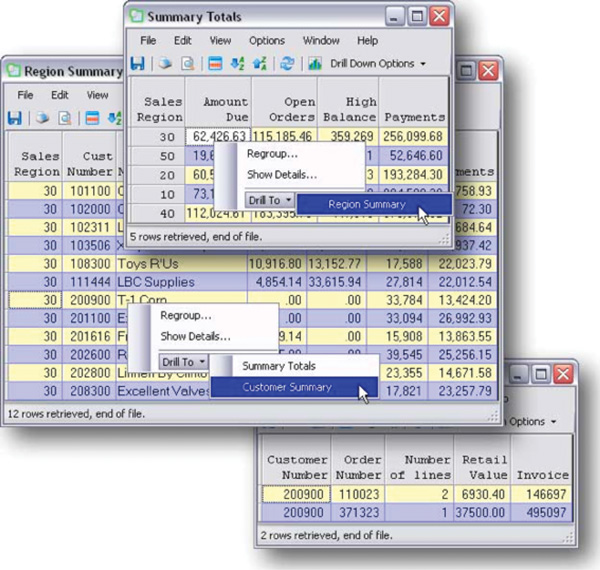Organizations today face an ever-expanding volume of information that must be analyzed and delivered to the right people. While the resulting business intelligence offers us insight into processes and customers, many companies still rely on practices and technology that aren’t suited for managing data on a large scale.
As a December 2012 Financial Director article highlighted, 60 percent of those responding to an FD survey said they use Excel spreadsheets for financial reporting and analysis. Excel is familiar and relatively easy to use, but it lacks the robustness of a business intelligence platform. The software also requires a number of manual data gathering processes. For example, what if you want to consolidate information from an Oracle database and an SQL server in one program? Developing a custom integration or using a third-party service may be possible, but this either takes a considerable amount of time or opens the door to vulnerabilities. For this reason, many companies import data into Excel manually. This practice takes time and may make corporate information less valuable by reducing data integrity.
Even with Excel’s shortcomings, it may be tempting forgo adoption of a more robust solution. After all, a company can use its own time as it sees fit. But business decision makers should be aware that relying on manual database access might result in unexpected costs.

Integrated data access solutions help companies avoid costs and penalties resulting from manual imports into programs like Excel.
Financial Director magazine highlighted two cases in which Excel use resulted in damage to organizations. In one instance, a company's stock fell 15 percent after data had been incorrectly migrated to a spreadsheet, resulting in inaccurate revenue reporting to shareholders.
In the other incident, a banking group was fined more than $9 million for being "overly reliant on large spreadsheets with multiple entries." The regulatory body said this created a lack of transparency and an environment with ineffective risk management practices.
It doesn't take a large error to cause problems, either. Information is an invaluable business asset, and companies depend on both the accuracy of that data and employees' ability to access it to make critical decisions.
For more on this topic, watch our free webinar: Gain Easy Access to Remote Databases.